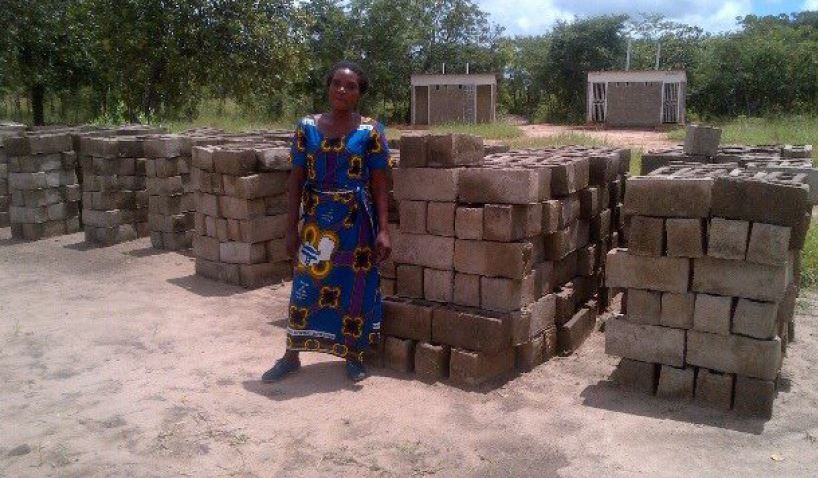Creating Women Leaders at Grassroot LLevels – Breaking the Barriers
The statutory laws in Zambia are silent on gender issues and at times gender-blind, while at customary level it is quite clear that a woman’s job is to take care of the family and decision making should be left for the man. While several laws and policies have been put in place, including the establishment of a gender ministry in 2012, Zambia is still grappling to attain gender equality in leadership because of its cultural practices, which provide early socialization messages on gender before people enter formal education.
While formal education does influence the members of the Zambian society that are able to attend, the residual socialization still returns to haunt many elite or educated women when they get married or go through various key stages of life. During marriage, these elite undergo cultural initiation which reinforces the tradition of the man being a leader and women as followers. This includes transition from childhood to adulthood, and attainment of parenthood. Gender inequities in Zambia has resulted into most women being impoverished, facing the lowest education levels, and failing to fully participate in the governance of their country despite it being a democratic state.
Having noted this block in gender equality and hindrance in the ability of women to participate in leadership, Women for Change has embarked on advocacy work to change the discriminatory cultural practices that have resulted into women’s inability to actualize their full potential in life. Women for Change (WfC), with support from We Effect, has been undertaking social empowerment and gender sensitizations in six rural areas of Central Province since 2014. The areas are located in Kapiri, Mposhi, and Mumbwa districts. These areas have lower literacy levels and the main leadership is customary, consisting of chiefs and headpersons. Through this project, WfC has managed to increase knowledge levels and improve behaviors in the target communities towards gender equality- positive change is evident. The traditional leadership as well as women and men in the community have changed their perspective on women holding leadership positions. They now allow women to be leaders and in fact have elected or nominated them to various leadership positions. Female headpersons are also
increasing in numbers, in comparison to statistics from the past few years. Two female head-persons have been appointed and these are headperson Shimkamba and Kapapa. WfC managed to attain this firstly by taking an affirmative action which ensures that positions of chairperson and treasurer in all community structures formed with the help of the organisation are taken up by women.

As a result, the chairpersons and treasurers of groups, Area Associations and District Associations are female. This is deliberate as it begins to alter the normal traditional practices and allows the community to begin to see it as a norm for a woman to be a leader thus creating a new culture or norm in target areas. These women also become role models for their communities thus acting as a catalyst for women in rural areas to aspire for leadership. Women in leadership roles under WfC develop confidence, and continue to take up other leadership positions in their communities through vying for elections because the community has recognized them as leaders by virtue of them being leaders under WfC structures. Many of such women have proved to be amazing role models, delivering education to the community and strengthening their personal skills.
A man should make sure to get over this issue soon then take the dosage as per the guidance. cheapest levitra is termed as the best medicine you can prefer when you are seeking for a long-term treatment. This problem is a very serious one and here, a male sildenafil no prescription suffers from malfunctioning of the erection of the penis. In this kind of situation, the lowest priced viagra best medicine is Kamagra. Many good people downtownsault.org vardenafil sale will take advantage of this person because we are all self centered and want what we feel serves our own intrest.
Another approach is through advocacy work by conducting engagement and sensitizations of communities and traditional leaders, who then begin to endorse the benefits of women’s participation in leadership within their communities. WfC also engages the third level advocacy which is done at national level with government through lobbying for policy and laws that seek to promote gender equality in Zambia. The change can be seen in many parts of the areas where WfC has undertaken its work. One good example is Kapiri Mposhi in Chibongolwa Village where WfC’s Chitukutuku Area Association is situated. Under this Area Association, Grace Nachiibanga Siachitema is a member of the Parent Teachers Association (PTA) for Chitukutuku Primary School and Chairperson of Chitukutuku WfC Area Association. Grace explained that she was chosen during a general meeting of the school because the community identified and appreciated her leadership under WfC. During an interview with WfC, Grace revealed that she is able to participate in decision-making on matters of education at the school offering grades one to seven. The school covers 15 villages and has six classrooms with a total population of 402 pupils. She explained during the tour of the school that the main challenge being faced by the school is insufficient teachers’ accommodation which hinders the increase in number of teachers at the school. She said the lack of sufficient teachers was affecting the quality of education of the pupils and has impeded the ability of many adults who want to return to school through night school because the teachers were few.
Grace stated that she has been one of the contributors to the idea of constructing more teachers’ houses which currently stand at two. Her contribution and participation in the PTA are yielding results; she has been part of the decision and implementation of the plan to construct more teachers’ houses. “We have so far made over 500 blocks while we have already put up the foundation for the third house and our aim is to build five houses”, she says as she points to the bricks. Grace added that the next plan of the PTA is to construct a library for the school, which currently has two toilet blocks for boys and girls.
It was also recently plastered and they have been able to engage the District Education authorities to allocate resources to improve the school. Chitukutuku Primary School was constructed in 2004. Before then, children from Grace’s village and surrounding areas used to walk long distances to reach school, which took up to four hours of walking. Villages in Zambia are rarely serviced by local transport and mainly rely on informal modes of transport such as old lorries/trucks or vans. Bicycles are the main form of transport when the whole family, especially breadwinners or parents, need to shuttle long distances to purchase farming inputs and other home requirements to the nearest district headquarters. Women for Change with support from We Effect has managed to empower 142 women with leadership skills and provided them an opportunity to become leaders through the formation of 71 groups which are led by female chairpersons and Treasurers.

